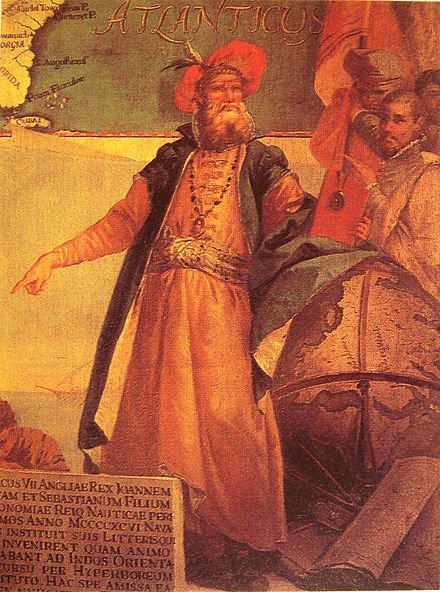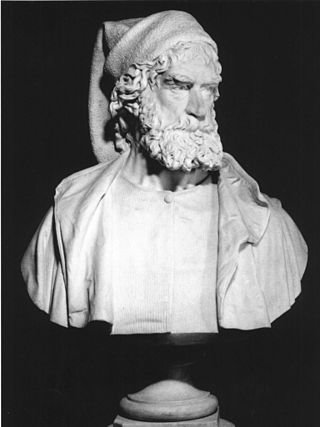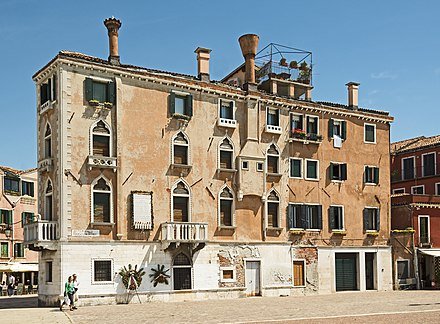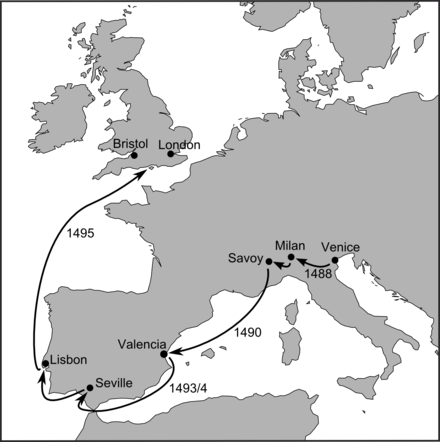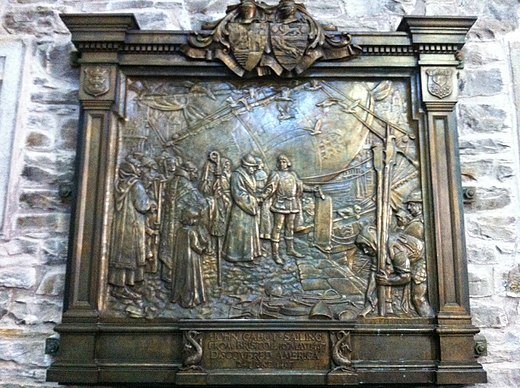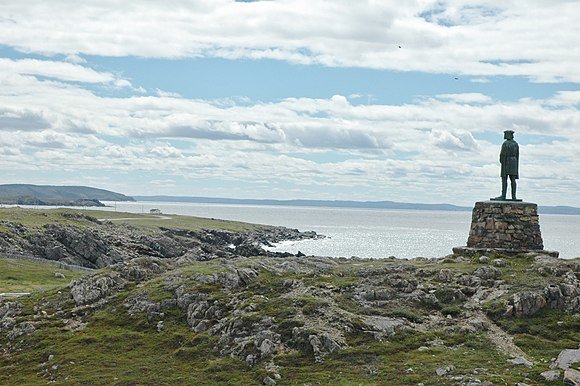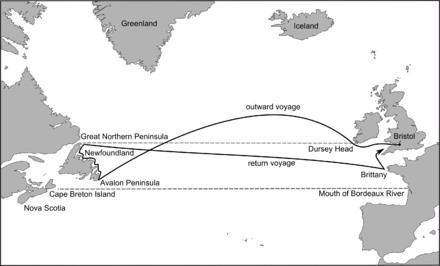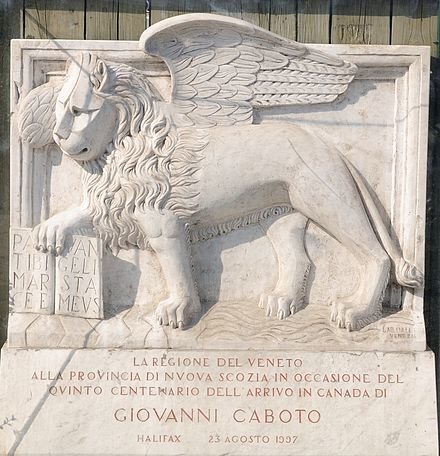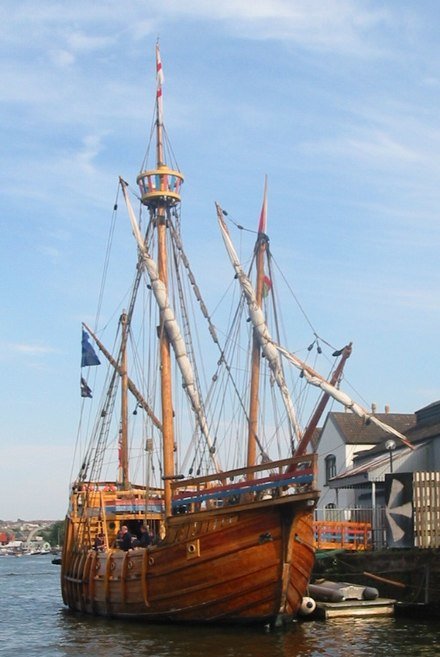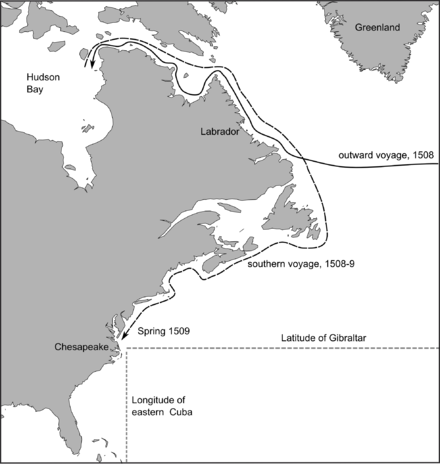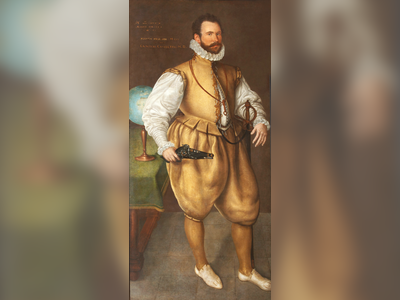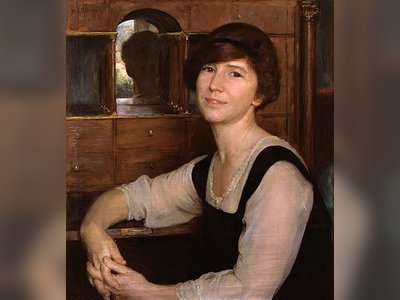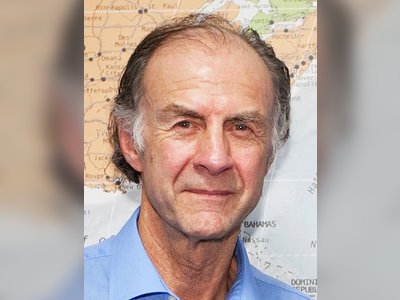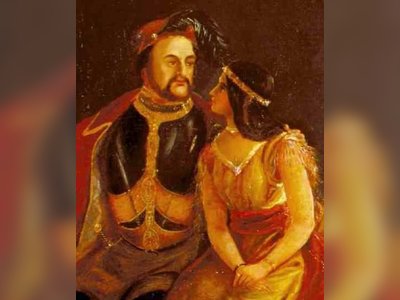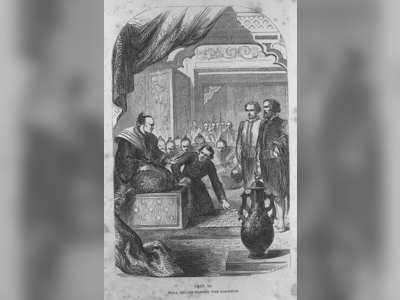British Heritage
Remember, Cherish, Learn.
beta
John Cabot - North American Trail-blazer
Contribution to British Heritage.
John Cabot, an Italian navigator and explorer, holds a significant place in British heritage due to his pioneering voyage to the coast of North America in 1497. Commissioned by King Henry VII of England, Cabot's expedition marks the earliest-known European exploration of coastal North America since the Norse visits to Vinland in the eleventh century. This historic journey opened the door to subsequent exploration and colonization of the New World by European powers, including England. Cabot's courageous voyage paved the way for British presence in the Americas and laid the foundation for the British Empire's expansion in the centuries to come.
To commemorate the 500th anniversary of Cabot's expedition, both the Canadian and British governments recognized Cape Bonavista, Newfoundland, as the site representing Cabot's first landing. Despite some alternative proposals, this location became a symbolic celebration of Cabot's groundbreaking voyage.
Moreover, Cabot's legacy endures through various place names and historical references. The Cabot Trail, a spectacular 185 km scenic highway through the Highlands and National Park of Cape Breton Island, Nova Scotia, is named in honor of his exploration. His name is remembered in different languages, such as Giovanni Caboto in Italian, Zuan Caboto in Venetian, Jean Cabot in French, and John Cabot in English, reflecting his multicultural background and wide-reaching influence.
Cabot's success lies not only in his discovery of new lands but also in securing royal patronage and financing for his expedition. While Columbus's voyages were largely financed by the Spanish crown, Cabot sought and obtained financial backing from both the Italian community in London and the English crown, demonstrating his diplomatic acumen and resourcefulness in navigating political landscapes.
Born around 1450, John Cabot, also known as Giovanni Caboto, hailed from Italy. His exact birthplace remains uncertain, with Gaeta in the Province of Latina and Castiglione Chiavarese in the Province of Genoa both proposed as potential locations. Cabot became a citizen of the Republic of Venice in 1476 after at least fifteen years of residency in the city, making Venice his base for maritime trade.
Cabot's exploratory spirit led him to venture into the eastern Mediterranean trade, giving him valuable insights into the origins of Eastern merchandise like spices and silks. Around 1484, he was married to Mattea, and they had three sons: Ludovico, Sebastian, and Sancto. Facing financial difficulties, Cabot departed Venice in 1488 and moved to Valencia, Spain. After brief stints in Seville and Lisbon, he arrived in England around mid-1495, seeking funding and political support for his ambitious expedition.
Cabot's voyage in 1497 was likely undertaken with one ship, the Matthew of Bristol, accompanied by a crew of 18 to 20 men. The exact location of his landfall in North America remains a subject of debate among historians, with Cape Bonavista in Newfoundland and Cape Breton Island in Nova Scotia among the leading contenders. Cabot's return to England was met with admiration and honor, receiving financial rewards and support for future expeditions from King Henry VII.
Despite his remarkable achievements, the details of Cabot's later life remain shrouded in mystery. Some historians speculate that he may have undertaken another expedition to North America around 1498-1500, while others suggest he may have chosen to remain in the New World. Regardless, Cabot's contributions to British heritage and the opening of the North American frontier are undeniable, shaping the course of history for both England and the wider world. His name lives on, cherished in the annals of exploration and discovery.
Legacy and Success
To commemorate the 500th anniversary of Cabot's expedition, both the Canadian and British governments recognized Cape Bonavista, Newfoundland, as the site representing Cabot's first landing. Despite some alternative proposals, this location became a symbolic celebration of Cabot's groundbreaking voyage.
Moreover, Cabot's legacy endures through various place names and historical references. The Cabot Trail, a spectacular 185 km scenic highway through the Highlands and National Park of Cape Breton Island, Nova Scotia, is named in honor of his exploration. His name is remembered in different languages, such as Giovanni Caboto in Italian, Zuan Caboto in Venetian, Jean Cabot in French, and John Cabot in English, reflecting his multicultural background and wide-reaching influence.
Cabot's success lies not only in his discovery of new lands but also in securing royal patronage and financing for his expedition. While Columbus's voyages were largely financed by the Spanish crown, Cabot sought and obtained financial backing from both the Italian community in London and the English crown, demonstrating his diplomatic acumen and resourcefulness in navigating political landscapes.
General Information
Born around 1450, John Cabot, also known as Giovanni Caboto, hailed from Italy. His exact birthplace remains uncertain, with Gaeta in the Province of Latina and Castiglione Chiavarese in the Province of Genoa both proposed as potential locations. Cabot became a citizen of the Republic of Venice in 1476 after at least fifteen years of residency in the city, making Venice his base for maritime trade.
Cabot's exploratory spirit led him to venture into the eastern Mediterranean trade, giving him valuable insights into the origins of Eastern merchandise like spices and silks. Around 1484, he was married to Mattea, and they had three sons: Ludovico, Sebastian, and Sancto. Facing financial difficulties, Cabot departed Venice in 1488 and moved to Valencia, Spain. After brief stints in Seville and Lisbon, he arrived in England around mid-1495, seeking funding and political support for his ambitious expedition.
Cabot's voyage in 1497 was likely undertaken with one ship, the Matthew of Bristol, accompanied by a crew of 18 to 20 men. The exact location of his landfall in North America remains a subject of debate among historians, with Cape Bonavista in Newfoundland and Cape Breton Island in Nova Scotia among the leading contenders. Cabot's return to England was met with admiration and honor, receiving financial rewards and support for future expeditions from King Henry VII.
Despite his remarkable achievements, the details of Cabot's later life remain shrouded in mystery. Some historians speculate that he may have undertaken another expedition to North America around 1498-1500, while others suggest he may have chosen to remain in the New World. Regardless, Cabot's contributions to British heritage and the opening of the North American frontier are undeniable, shaping the course of history for both England and the wider world. His name lives on, cherished in the annals of exploration and discovery.
- John Caboten.wikipedia.org
